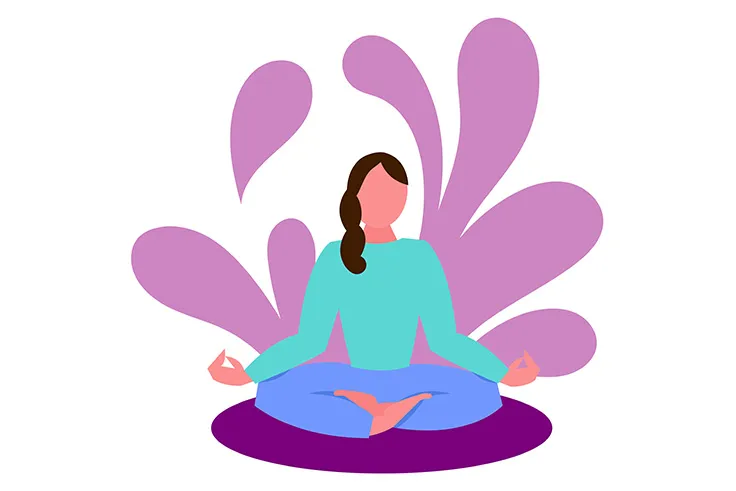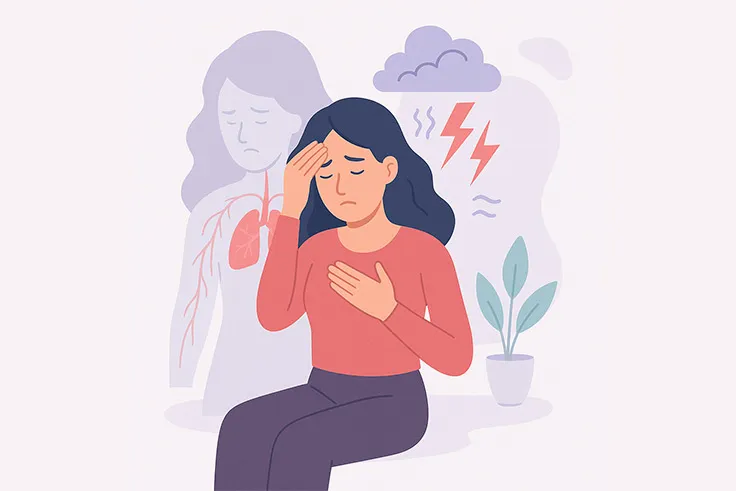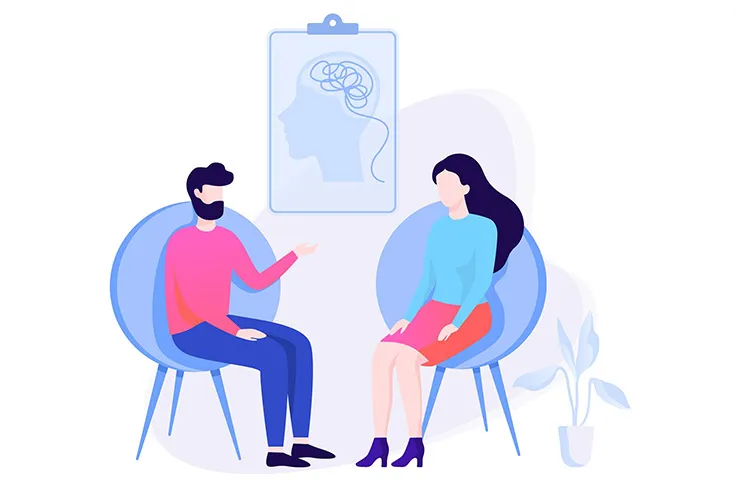
Unveiling the Power of the Mind-Body Connection
The mind and body have long been recognised as separate entities, each functioning independently. However, an emerging body of scientific research sheds light on the profound connection between the two. This mind-body connection encompasses how our thoughts, emotions, and beliefs influence our physical well-being.
Let us look at an example. In a bustling city, Sarah was lost amidst the chaos of her thoughts. Her body felt fatigued, and her mind was overwhelmed. Seeking solace, she stumbled upon an ancient book, unveiling the enigmatic secrets of the mind-body connection. Intrigued, she embarked on a journey of self-discovery. Through mindfulness and self-reflection, Sarah began to witness the subtle interplay between her thoughts and physical sensations. As she nurtured her mind with positivity and practised self-care, her body responded with newfound vitality and resilience.
Sarah’s story serves as a reminder that within us lies a profound symphony where the whispers of our minds orchestrate the dance of our bodies. Understanding and harnessing this connection can unlock immense healing and personal growth potential.
In this blog, we will explore the mind-body connection’s fascinating realm and delve into its profound implications for our overall health and well-being.
The Science Behind The Connection
Recent scientific studies have highlighted the intricate interplay between the mind and body. The field of psychoneuroimmunology examines how psychological factors impact the immune system, and extensive research has demonstrated the influence of emotions on our physical health. For instance, chronic stress has been linked to a weakened immune response, increased inflammation, and a higher risk of cardiovascular disease. (1)
One crucial component of the mind-body connection is the role of neurotransmitters and hormones. Positive emotions such as happiness and love trigger the release of endorphins and oxytocin, often referred to as the “feel-good” hormones, which contribute to a sense of well-being and can enhance immune function. Conversely, negative emotions like stress, anger, or depression can disrupt the delicate balance of these chemicals, contributing to various health issues.
The Placebo Effect
The placebo effect further highlights the power of the mind-body connection. When individuals believe they are receiving a beneficial treatment, their symptoms often improve, even if the treatment itself is inert. This phenomenon underscores the influence of the mind in the healing process. Placebos have been found to activate various brain regions associated with pain relief and healing, demonstrating the significant role our beliefs and expectations play in shaping our physical experiences. (2)
Mind-Body Practices For Well-being
Numerous practices have emerged to harness the mind-body connection and promote overall well-being. Meditation, for example, has been shown to reduce stress, lower blood pressure, and enhance cognitive function. Through focused attention and mindfulness, meditation helps cultivate self-awareness and promotes a sense of calm and balance.
Yoga is another powerful practice integrating physical postures, breath control, and meditation. Its benefits extend beyond flexibility and strength, as it enhances mental clarity, reduces anxiety, and improves overall vitality. Tai Chi, an ancient Chinese martial art, combines slow, flowing movements with deep breathing and meditation. It has been found to enhance balance, reduce stress, and promote emotional well-being. (3)
The mind-body connection is a profound and intricate phenomenon, demonstrating that our thoughts, emotions, and beliefs significantly impact our physical health and well-being. By nurturing this connection through practices like meditation, yoga, and Tai Chi, we can unlock immense potential for healing, personal growth, and overall vitality. Embracing the power of the mind-body connection is a transformative journey that allows us to live our lives in harmony and optimal health.
To learn more about Incontact Counseling and to embark on a transformative journey of the mind-body connection with one of our counsellors, visit our website at www.incontact.com.sg.
Joaquín Selva, Bc.S. (2023) Exploring the body mind connection (incl. 5 techniques), PositivePsychology.com. Available at: https://positivepsychology.com/body-mind-integration-attention-training/ (Accessed: 16 August 2023).
McGinnis, P.Q. (2008) Tai Chi, Tai Chi – an overview | ScienceDirect Topics. Available at: https://www.sciencedirect.com/topics/nursing-and-health-professions/tai-chi (Accessed: 16 August 2023).
Seiler, A., Fagundes, C.P. and Christian, L.M. (1970) The impact of everyday stressors on the immune system and health, SpringerLink. Available at: https://link.springer.com/chapter/10.1007/978-3-030-16996-1_6 (Accessed: 16 August 2023).
The power of the placebo effect (2021) Harvard Health. Available at: https://www.health.harvard.edu/mental-health/the-power-of-the-placebo-effect#:~:text=Your%20mind%20can%20be%20a,has%20been%20around%20for%20millennia (Accessed: 16 August 2023).
Wing, J. (2021) What is the mind-body connection?, Florida Medical Clinic. Available at: https://www.floridamedicalclinic.com/blog/what-is-the-mind-body-connection/#:~:text=The%20mind%2Dbody%20connection%20is,emotions%20influence%20health%20and%20longevity (Accessed: 16 August 2023).
Submit a Comment
Your email address will not be published. Required fields are marked *
Related reading
What Not to Expect from Therapy: Dispelling Common Misconceptions
24 April, 2025
You finally booked your first therapy session, nerves and hope swirling inside you. Maybe you’ve heard that therapy can work wonders – and it can. In f...
It’s Not Just in Your Head: How Trauma Affects Your Body and How You Can Heal
23 April, 2025
Have you ever noticed aches, fatigue, or tension in your body after a stressful or traumatic experience? If so, you’re not alone. When we think of trauma...
How to Prepare for Your First Therapy Session: A Beginner’s Guide
5 March, 2025
Choosing to begin therapy is a courageous and empowering decision. It signifies your willingness to invest in your mental and emotional well being, it’s ...





